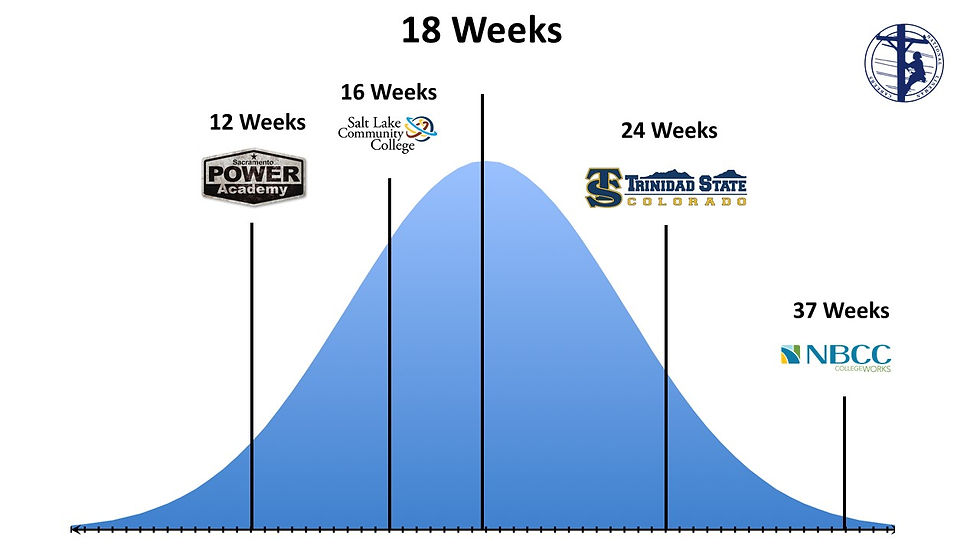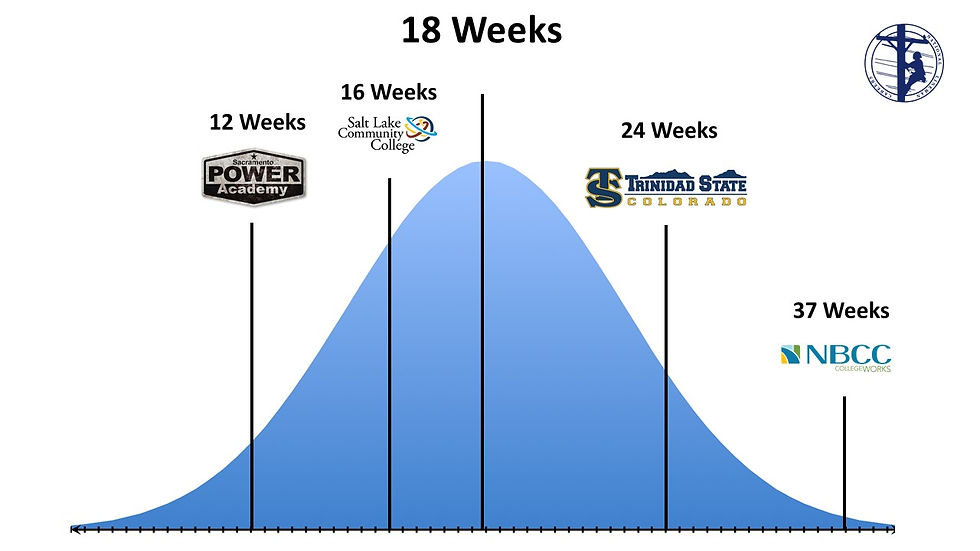Are you considering a career as a lineman and wondering which school is the best for you? Look no further! In this article, we will help guide you on the path to choosing the top school that will equip you with the necessary skills and knowledge to excel in this field. Whether you are just starting out or looking to advance your career, finding the right school is crucial to your success. So let’s explore the options and find the perfect fit for you!
Researching the Field
Understanding the Role of a Lineman
If you’re considering pursuing a career as a lineman, it’s important to first understand the role and responsibilities that come with it. Linemen are essential workers who install, repair, and maintain electrical power systems. They work frequently with high voltage equipment and often perform their duties in challenging weather conditions. As a lineman, you’ll need to have a strong understanding of electrical systems, be skilled in working with various tools and equipment, and possess a keen attention to detail to ensure the safety and reliability of power distribution.
Job Opportunities and Demand
Before committing to a lineman program, it’s crucial to assess the job opportunities and demand in the field. The demand for linemen is expected to grow in the coming years, driven by the increasing need for infrastructure development, maintenance, and renewable energy projects. Linemen can find employment opportunities in various sectors such as utility companies, electrical contractors, telecommunications, and construction companies. By choosing a reputable lineman school, you’ll gain the necessary skills and qualifications to secure a stable and rewarding career in this field.
Necessary Skills and Qualifications
To excel as a lineman, there are certain skills and qualifications that you should possess. Strong mechanical and technical abilities are essential, as linemen often work with complex electrical equipment and systems. Physical fitness is also important, as the job can be physically demanding, requiring climbing poles and working at Heights. Additionally, linemen should have excellent problem-solving and communication skills to effectively troubleshoot and collaborate with their team members. Having a high school diploma or GED is typically a minimum requirement, while some employers may prefer candidates with formal lineman training and certifications.
Factors to Consider
Accreditation and Certification
When choosing a lineman school, it’s crucial to look for accreditation and certification. Accreditation ensures that the school meets specific standards in terms of curriculum, faculty qualifications, and student support services. Opting for a school that is accredited by industry-recognized organizations such as the National Center for Construction Education and Research (NCCER) can provide assurance of quality education. Additionally, certifications like the Power Line Technician (PLT) certification from the National Joint Apprenticeship and Training Committee (NJATC) can further enhance your employability and demonstrate your proficiency in the field.
Program Length and Content
Lineman programs can vary in length and content, so it’s important to consider your personal circumstances and goals. Some schools offer shorter, intensive programs that can be completed in a matter of months, while others offer more comprehensive programs that span over a year. Longer programs often provide a more in-depth education and hands-on training, but they may not be feasible for individuals who need to enter the workforce quickly. Evaluate your priorities and select a program that aligns with your career timeline and learning preferences.
Faculty and Industry Experience
The experience and expertise of the faculty members can greatly impact the quality of education you receive. Look for lineman schools that employ instructors with extensive practical experience in the field. These instructors can offer valuable insights, real-world examples, and industry connections that can enrich your learning experience. Additionally, check if the school collaborates with industry professionals or has partnerships with utility companies, as this can provide opportunities for internships, networking, and potential job placements.
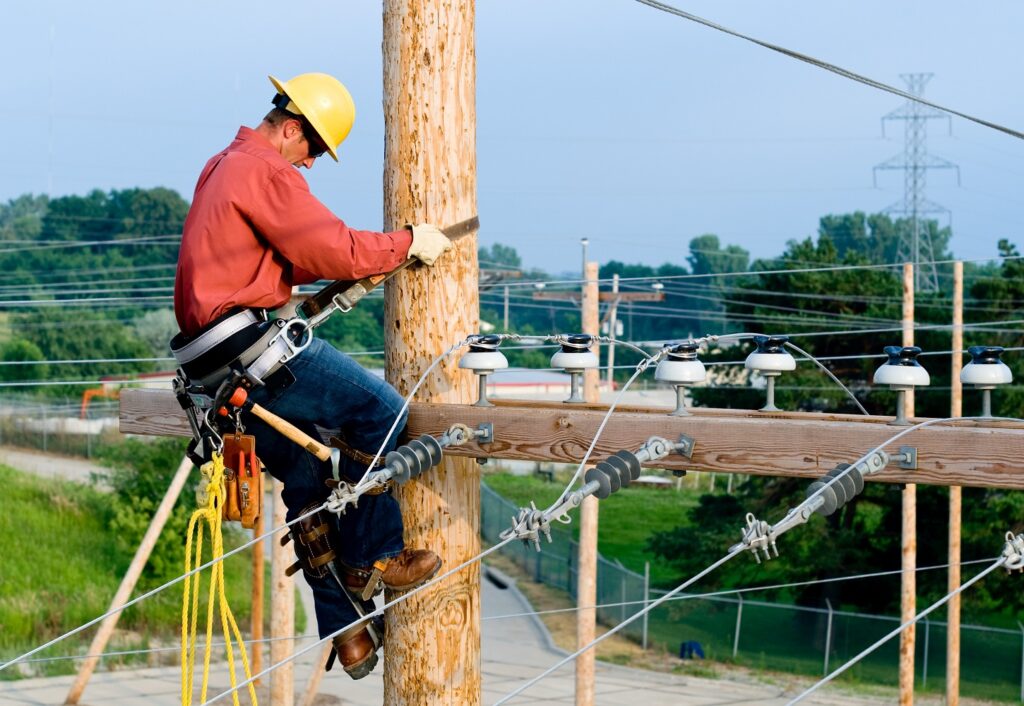
Reviewing Top Lineman Schools
ABC Lineman School
ABC Lineman School is known for its comprehensive lineman training programs and commitment to practical education. Their program covers a wide range of topics, including safety procedures, electrical theory, pole climbing techniques, and equipment operation. The school boasts experienced faculty members who have vast knowledge and up-to-date industry experience. ABC Lineman School also has strong connections with utility companies, allowing students to gain internships and job placement opportunities. With a focus on hands-on training, ABC Lineman School equips students with the skills and confidence needed to succeed in the field.
XYZ Technical Institute
XYZ Technical Institute offers a well-rounded lineman program that prepares students for a successful career in the electrical power industry. The program at XYZ emphasizes both classroom instruction and practical training to ensure students have a strong foundation of knowledge combined with hands-on skills. The institute’s faculty members are not only highly qualified but also have extensive industry experience. XYZ Technical Institute is known for its state-of-the-art training facilities and commitment to providing the latest equipment and technology. Graduates from XYZ can expect to enter the job market with a competitive edge.
QRS Line Training Center
QRS Line Training Center offers specialized lineman training programs designed to meet the industry’s evolving needs. The center provides a comprehensive curriculum that covers all aspects of line work, from electrical systems and safety protocols to troubleshooting and emergency response. QRS Line Training Center takes pride in their experienced faculty members, who bring a wealth of knowledge and real-world experience to the classroom. The center’s strong industry partnerships ensure that students have access to internship opportunities and potential job placements. QRS Line Training Center values practical training and equips students with the skills needed to excel in this demanding field.
Program Cost and Financial Aid
Tuition and Fees
When considering a lineman school, it’s crucial to evaluate the program cost and fees. Tuition can vary significantly depending on the school, program length, and the resources provided. Some lineman schools may offer financial assistance options or scholarships to help offset the costs. Carefully review the tuition and fees associated with each program and consider your budget and financial resources before making a decision.
Scholarships and Grants
To assist students in financing their education, lineman schools may offer scholarships and grants. Scholarships are typically merit-based or need-based and can help reduce the financial burden of tuition expenses. Grants, on the other hand, are often need-based and can provide additional financial aid without the requirement of repayment. Research the various scholarship and grant opportunities offered by the lineman schools you’re considering and explore other external scholarships as well.
Student Loan Options
If scholarships and grants are not sufficient to cover the entire cost of your lineman education, student loans can be an option to explore. Federal student loans, such as the Direct Subsidized and Unsubsidized Loans, can provide funding at reasonable interest rates, and repayment options can be flexible based on your income. Private student loans from banks or credit unions are another alternative, although they may have higher interest rates and stricter repayment terms. Consider the pros and cons of each option and make sure to borrow responsibly.

Campus Facilities and Resources
Training Facilities and Equipment
The quality of training facilities and equipment can greatly enhance your learning experience as a lineman student. Look for schools that offer well-equipped training facilities that simulate real-world working environments. These facilities should include practice poles, climbing equipment, electrical systems, and safety gear. Having access to up-to-date and industry-standard equipment will not only ensure you receive quality training but also familiarize you with the tools you will be using in your future career.
Library and Study Spaces
A well-equipped library and dedicated study spaces are essential for students to excel academically. Lineman schools should provide access to a variety of resources such as textbooks, reference materials, and online databases to support your learning. Additionally, having quiet study areas or group study rooms can facilitate collaborative learning and help you make the most of your study time.
Career Services and Job Placement
A strong career services department can significantly enhance your post-graduation prospects. Look for lineman schools that offer career counseling, resume building workshops, and job placement assistance. Schools with established connections to local utility companies or industry partnerships can provide valuable networking opportunities and increase your chances of securing internships or full-time employment. A robust career services department can guide you through the job search process and ensure you are prepared for a successful transition into the workforce.
Alumni Success and Industry Connections
An Alumni Network
An active and engaged alumni network can provide invaluable support and mentorship opportunities for current students and recent graduates. Look for lineman schools that have a strong alumni network, as this can offer networking opportunities, job leads, and insights into the industry. Alumni events, guest speakers, and mentoring programs are all signs of a vibrant and supportive alumni community.
Industry Partnerships and Internship Opportunities
Lineman schools that have established partnerships with local utility companies and industry organizations can provide valuable internship opportunities. Internships allow students to apply their skills in a real-world setting, gain practical experience, and make industry connections. Look for lineman schools that prioritize industry partnerships and have a track record of successfully placing students in internships with reputable organizations.
Job Placement Rates
When researching lineman schools, inquire about their job placement rates. A high job placement rate indicates that the school’s graduates are in demand within the industry. Ask schools for data on their recent graduates’ employment outcomes and the types of positions they secured. A school with a strong track record of placing graduates into meaningful positions can give you confidence in your own job prospects after completing the program.
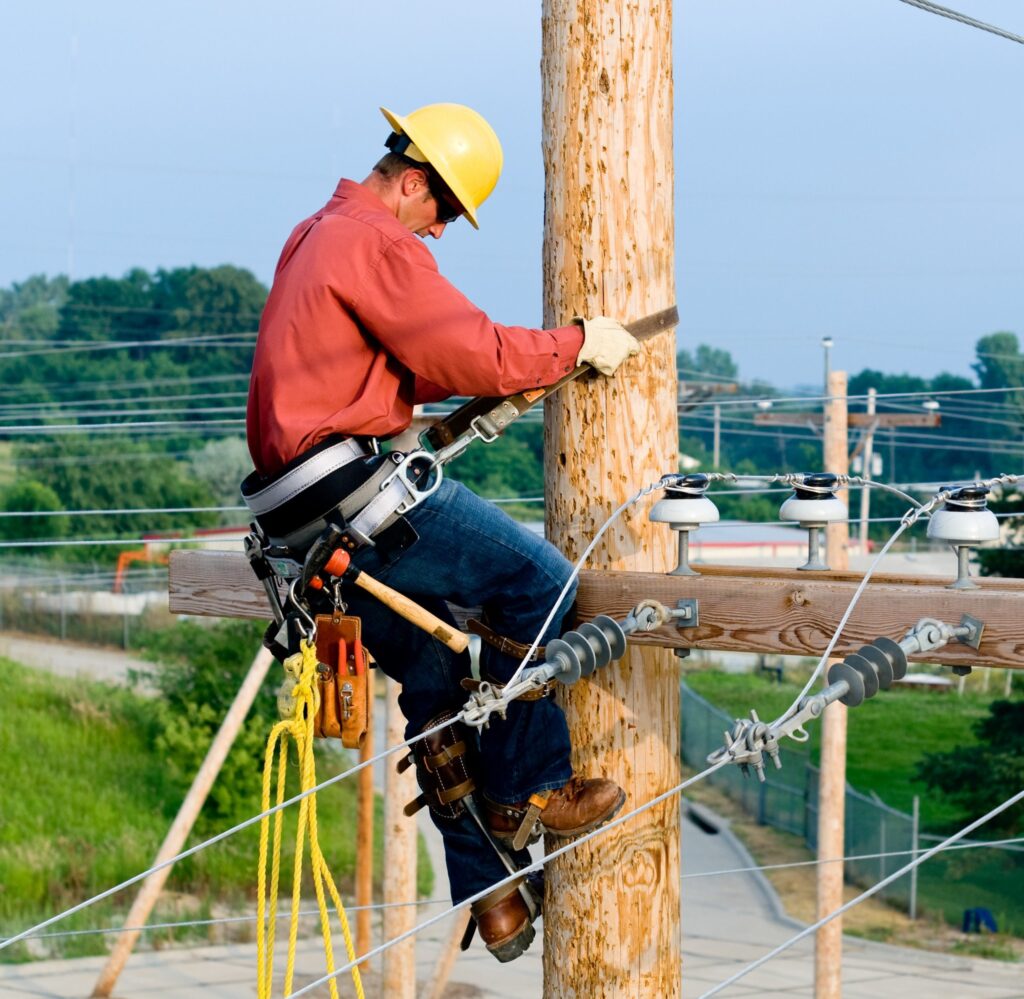
Location and Lifestyle
Urban vs. Rural Settings
Consider your preference for an urban or rural setting when choosing a lineman school. Urban schools may offer more diverse cultural experiences, access to a wider range of amenities, and potential networking opportunities in a larger job market. On the other hand, rural schools may provide a close-knit community and a more peaceful environment. Think about what type of location suits your lifestyle and personal preferences.
Climate and Weather Considerations
Depending on the location of the lineman school, you may be exposed to different climate conditions. Consider the climate and weather patterns of each school you are considering. If you prefer milder climates or have specific weather preferences, this can be an important factor to consider. Keep in mind that as a lineman, you may be working outdoors in various weather conditions, so selecting a school in a climate that aligns with your tolerance for different weather scenarios can be advantageous.
Cost of Living
The cost of living varies from one location to another. Take into account the cost of housing, transportation, groceries, and other daily expenses when evaluating lineman schools. A lower cost of living can make your education more affordable and allow you to allocate more resources towards your career goals. However, also consider the availability of job opportunities and potential earning potential in the area.
Program Schedule and Flexibility
Full-time vs. Part-time Options
Lineman schools may offer both full-time and part-time program options to cater to different student needs. Full-time programs typically provide an accelerated pathway to completion, allowing you to enter the workforce more quickly. Part-time options, on the other hand, offer greater flexibility and can be a good fit for individuals who need to balance their education with work or other commitments. Consider your personal circumstances and determine which program schedule option aligns best with your goals and availability.
Evening or Weekend Classes
If you are currently working or have other daytime responsibilities, evening or weekend classes can be a convenient option. Some lineman schools offer classes during non-traditional hours to accommodate students’ schedules. Keep in mind that evening or weekend classes may have a longer program duration compared to full-time programs. Assess your availability and commitments to decide whether these alternative class schedules are the right fit for you.
Online or Hybrid Programs
An increasing number of lineman schools are now offering online or hybrid programs, which can provide additional flexibility and accessibility. Online programs enable you to study remotely and at your own pace, eliminating the need to relocate or commute to a physical campus. Hybrid programs combine online coursework with hands-on training on campus. If you prefer a self-paced learning approach or have geographical constraints, exploring online or hybrid lineman programs can open up more opportunities for you.
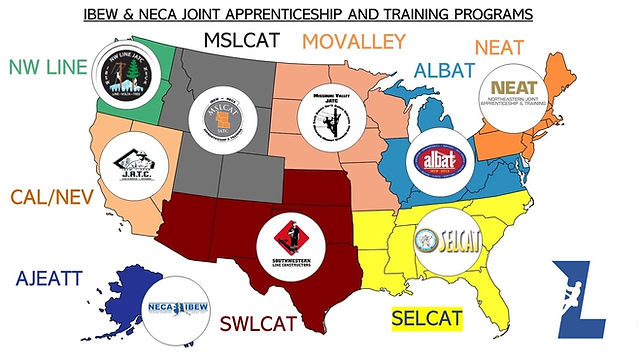
Student Support Services
Tutoring and Academic Support
Strong academic support services can greatly enhance your educational experience. Look for lineman schools that offer tutoring programs, study groups, or academic resource centers to help you succeed in your coursework. Academic support services can provide assistance with understanding complex concepts, improving study skills, and preparing for exams. Taking advantage of these resources can maximize your learning potential and boost your academic performance.
Counseling and Mental Health Services
In addition to academic support, it’s essential to consider the availability of counseling and mental health services. Pursuing a lineman career can be physically and mentally demanding, and having access to professional mental health support can prove beneficial. Look for schools that prioritize student well-being by offering counseling services, mental health resources, and stress management programs. Prioritizing your mental health throughout your education can contribute to your overall success and well-being.
Disability Services
If you have a disability or require accommodations, it’s crucial to select a lineman school that provides comprehensive disability services. These services may include specialized equipment, accessibility measures, note-taking assistance, or extended exam time. Ensure that the lineman schools you are considering have dedicated staff and resources to support students with disabilities. Understanding the available accommodations can help you make an informed decision and ensure a positive learning experience.
Visiting and Comparing Schools
Campus Tours and Open Houses
Once you have narrowed down your choices, consider visiting the campuses of the lineman schools you are interested in. Campus tours and open houses give you the opportunity to explore the facilities, meet faculty members, and interact with current students. During these visits, evaluate the classrooms, training areas, and library resources to assess if they meet your expectations. Campus tours can also help you get a feel for the overall atmosphere and campus culture, allowing you to make a more informed decision.
Connecting with Current Students and Faculty
While visiting the campuses, try to connect with current students and faculty members whenever possible. Their firsthand experiences and insights can offer valuable perspectives on the school’s strengths and weaknesses. Ask questions about the curriculum, faculty support, and the overall student experience. Connecting with current students and faculty can give you deeper insights into the learning environment and help you gauge if it’s the right fit for you.
Asking Key Questions
During your campus visits or virtual interactions, prepare a list of key questions to ask. Some important questions to consider include:
- What is the student-to-faculty ratio?
- How many hours of hands-on training are included in the program?
- What are the job placement rates for recent graduates?
- What industry certifications are offered or recommended in the program?
- What support services are available for students, such as tutoring or counseling?
Asking these questions will allow you to gather relevant information and make an informed decision regarding the best lineman school for you.
In conclusion, choosing the best school to become a lineman requires thorough research and careful consideration of various factors. Understanding the role of a lineman, assessing job opportunities, and identifying the necessary skills and qualifications should be the starting point. Factors like accreditation, program length, faculty expertise, program cost, campus facilities, alumni success, location, program schedule, student support services, and visiting the schools are all essential components to consider when making your decision. By evaluating these factors comprehensively, you can choose a lineman school that aligns with your goals, provides quality education, and sets you on a path to a successful career in the electrical power industry.
